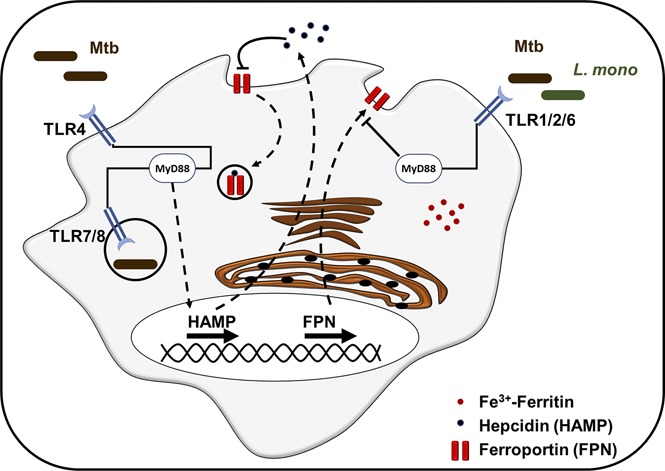pattismith
Senior Member
- Messages
- 3,988
Natural Modulators of Endosomal Toll-Like Receptor-Mediated Psoriatic Skin Inflammation.
Lai CY1,
Su YW1,
Lin KI2,
Hsu LC3,
Chuang TH1
Journal of Immunology Research, 13 Aug 2017, 2017:7807313
DOI: 10.1155/2017/7807313 PMID: 28894754 PMCID: PMC5574364
Abstract
Psoriasis is a chronic inflammatory autoimmune disease that can be initiated by excessive activation of endosomal toll-like receptors (TLRs), particularly TLR7, TLR8, and TLR9. Therefore, inhibitors of endosomal TLR activation are being investigated for their ability to treat this disease.
The currently approved biological drugs adalimumab, etanercept, infliximab, ustekinumab, ixekizumab, and secukizumab are antibodies against effector cytokines that participate in the initiation and development of psoriasis.
Several immune modulatory oligonucleotides and small molecular weight compounds, including IMO-3100, IMO-8400, and CPG-52364, that block the interaction between endosomal TLRs and their ligands are under clinical investigation for their effectiveness in the treatment of psoriasis. In addition, several chemical compounds, including AS-2444697, PF-05387252, PF-05388169, PF-06650833, ML120B, and PHA-408, can inhibit TLR signaling.
Although these compounds have demonstrated anti-inflammatory activity in animal models, their therapeutic potential for the treatment of psoriasis has not yet been tested.
Recent studies demonstrated that natural compounds derived from plants, fungi, and bacteria, including
mustard seed,
Antrodia cinnamomea extract,
curcumin,
resveratrol,
thiostrepton,
azithromycin, and
andrographolide,
inhibited psoriasis-like inflammation induced by the TLR7 agonist imiquimod in animal models.
These natural modulators employ different mechanisms to inhibit endosomal TLR activation and are administered via different routes.
Therefore, they represent candidate psoriasis drugs and might lead to the development of new treatment options.

HDJIR_7807313 1..15 (europepmc.org)
Lai CY1,
Su YW1,
Lin KI2,
Hsu LC3,
Chuang TH1
Journal of Immunology Research, 13 Aug 2017, 2017:7807313
DOI: 10.1155/2017/7807313 PMID: 28894754 PMCID: PMC5574364
Abstract
Psoriasis is a chronic inflammatory autoimmune disease that can be initiated by excessive activation of endosomal toll-like receptors (TLRs), particularly TLR7, TLR8, and TLR9. Therefore, inhibitors of endosomal TLR activation are being investigated for their ability to treat this disease.
The currently approved biological drugs adalimumab, etanercept, infliximab, ustekinumab, ixekizumab, and secukizumab are antibodies against effector cytokines that participate in the initiation and development of psoriasis.
Several immune modulatory oligonucleotides and small molecular weight compounds, including IMO-3100, IMO-8400, and CPG-52364, that block the interaction between endosomal TLRs and their ligands are under clinical investigation for their effectiveness in the treatment of psoriasis. In addition, several chemical compounds, including AS-2444697, PF-05387252, PF-05388169, PF-06650833, ML120B, and PHA-408, can inhibit TLR signaling.
Although these compounds have demonstrated anti-inflammatory activity in animal models, their therapeutic potential for the treatment of psoriasis has not yet been tested.
Recent studies demonstrated that natural compounds derived from plants, fungi, and bacteria, including
mustard seed,
Antrodia cinnamomea extract,
curcumin,
resveratrol,
thiostrepton,
azithromycin, and
andrographolide,
inhibited psoriasis-like inflammation induced by the TLR7 agonist imiquimod in animal models.
These natural modulators employ different mechanisms to inhibit endosomal TLR activation and are administered via different routes.
Therefore, they represent candidate psoriasis drugs and might lead to the development of new treatment options.
HDJIR_7807313 1..15 (europepmc.org)
Last edited:

